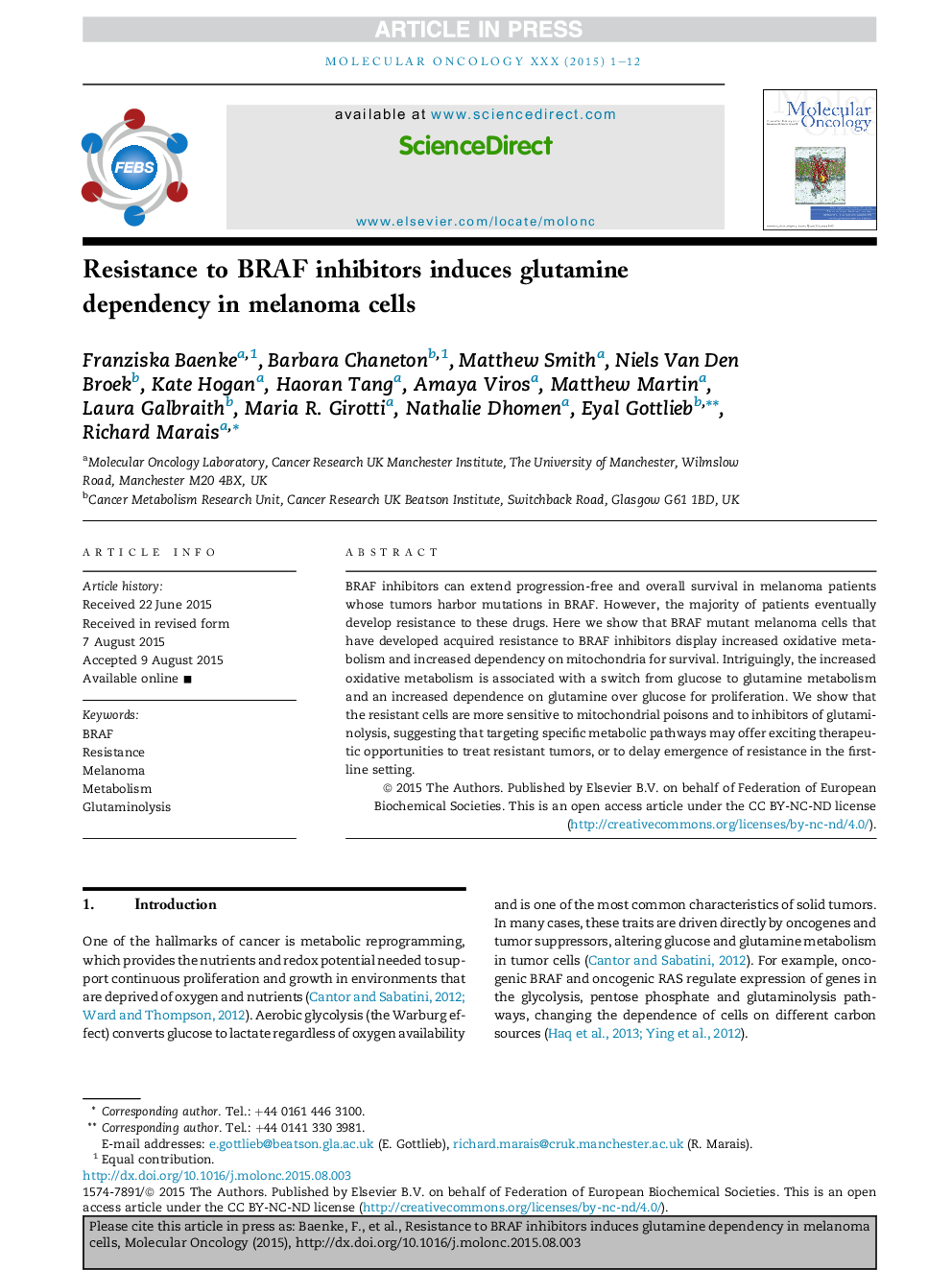| Article ID | Journal | Published Year | Pages | File Type |
|---|---|---|---|---|
| 10914533 | Molecular Oncology | 2016 | 12 Pages |
Abstract
BRAF inhibitors can extend progression-free and overall survival in melanoma patients whose tumors harbor mutations in BRAF. However, the majority of patients eventually develop resistance to these drugs. Here we show that BRAF mutant melanoma cells that have developed acquired resistance to BRAF inhibitors display increased oxidative metabolism and increased dependency on mitochondria for survival. Intriguingly, the increased oxidative metabolism is associated with a switch from glucose to glutamine metabolism and an increased dependence on glutamine over glucose for proliferation. We show that the resistant cells are more sensitive to mitochondrial poisons and to inhibitors of glutaminolysis, suggesting that targeting specific metabolic pathways may offer exciting therapeutic opportunities to treat resistant tumors, or to delay emergence of resistance in the first-line setting.
Related Topics
Life Sciences
Biochemistry, Genetics and Molecular Biology
Cancer Research
Authors
Franziska Baenke, Barbara Chaneton, Matthew Smith, Niels Van Den Broek, Kate Hogan, Haoran Tang, Amaya Viros, Matthew Martin, Laura Galbraith, Maria R. Girotti, Nathalie Dhomen, Eyal Gottlieb, Richard Marais,
